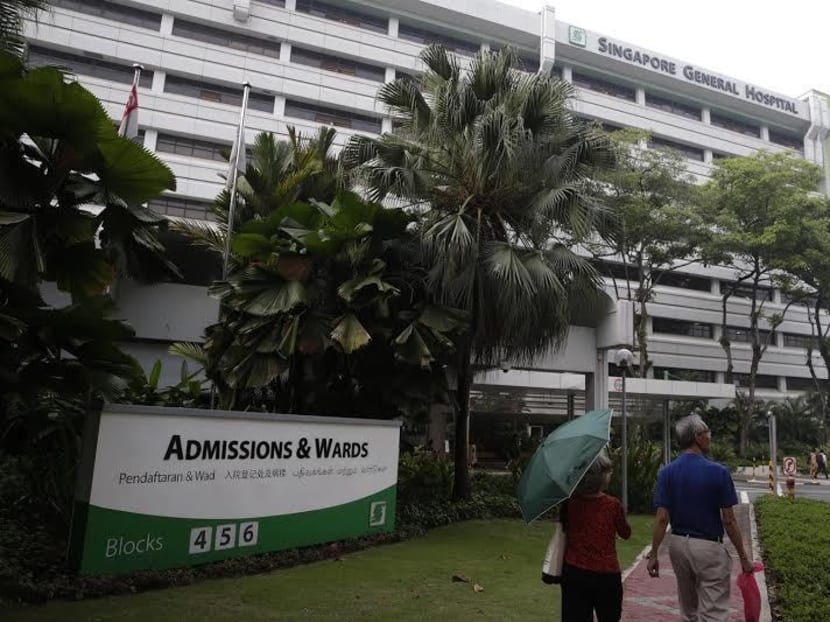Public not told earlier ‘as there were no signs of acute hepatitis C cases’
SINGAPORE — As shocked Singaporeans digested the news about the hepatitis C virus outbreak in Singapore General Hospital (SGH) and began asking many questions, such as why it took the authorities so long to inform the public of the situation, the Ministry of Health (MOH) said yesterday (Oct 7) that there had been no signs earlier to suggest that these were cases of acute viral hepatitis C.
SINGAPORE — As shocked Singaporeans digested the news about the hepatitis C virus outbreak in Singapore General Hospital (SGH) and began asking many questions, such as why it took the authorities so long to inform the public of the situation, the Ministry of Health (MOH) said yesterday (Oct 7) that there had been no signs earlier to suggest that these were cases of acute viral hepatitis C.
Under the Infectious Diseases Act, cases of acute viral hepatitis C have to be reported to the ministry within 72 hours, whereas chronic cases need not be reported.
In the case of the outbreak at SGH, which saw 22 renal patients infected with the hepatitis C virus possibly because of a lapse in the use of multi-dose medication vials, the MOH had received earlier notifications of these cases from the hospital’s laboratory.
However, at that point in time, the cases did not have symptoms — such as jaundice — or a history of exposure to suggest that they were acute.
“As it can be difficult to detect such asymptomatic hepatitis C based on blood tests alone, doctors generally look for a link to an event of relevant exposure, such as current intravenous drug use or a needle-stick injury,” said an MOH spokesperson yesterday, adding that most acute hepatitis C virus infections tend to be without symptoms.
A subsequent review showed that the outbreak at SGH included acute cases, and they will be updated on the MOH’s Weekly Infectious Diseases Bulletin in the next report.
SGH first noticed a spike in cases in June, but only reported the outbreak to the ministry in late August. On Tuesday, Health Minister Gan Kim Yong said he was gravely concerned and disappointed over the outbreak. Four of the eight deaths among the pool of affected patients are possibly linked to the infection. One other death is still under review.
After the incident was made public on Tuesday, many Singaporeans, including netizens, have questioned the time lag in making the news public.
Yesterday, MOH set out the timeline of its actions in greater detail.
After being informed of the cluster in late August, the director of Medical Services Benjamin Ong met SGH clinicians on Sept 3 to seek clarifications on the hospital’s initial investigations, said an MOH spokesperson.
Associate Professor Ong said SGH needed to “conclusively verify where the gaps leading to these infections were and that an external review would be required”.
He also requested for several things to be completed within two weeks. First, external parties to be found to sit on the two committees SGH was to set up to review clinical matters, as well as infection control and patient safety processes. He also asked for SGH’s phylogenetic analysis of the affected patients’ samples to be externally verified, and the hospital to put up a plan for screening its healthcare staff for hepatitis C — as of Sept 25, screening results of 76 staff members were negative for hepatitis C.
On Sept 4, an MOH team led by Dr Daphne Khoo, group director of the ministry’s Healthcare Performance Group, visited SGH’s renal ward (Wards 64A and 67) for a process walk-through. Three days later, external verification of SGH’s phylogenetic analysts was completed and confirmed the initial findings that the 21 cases were related.







